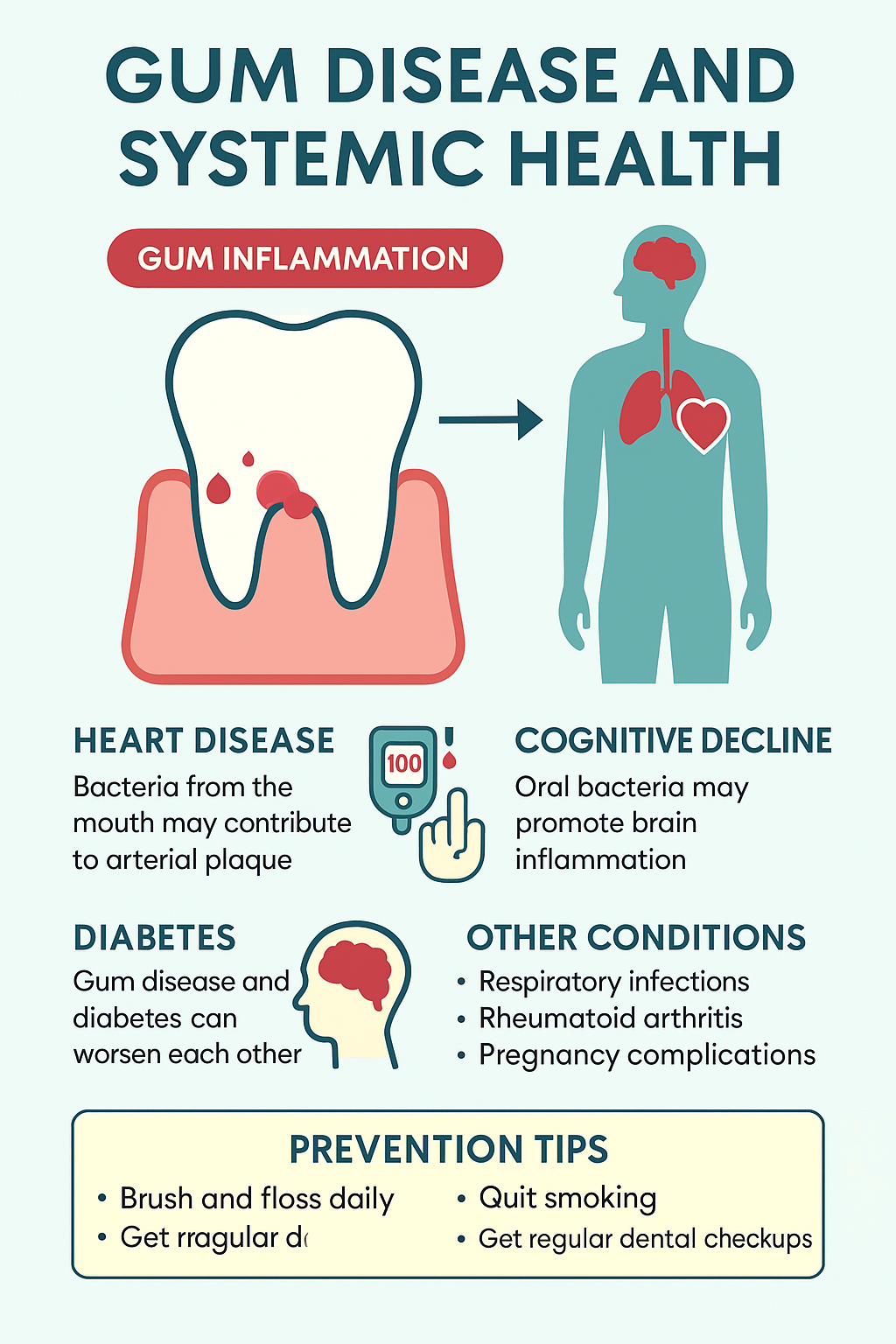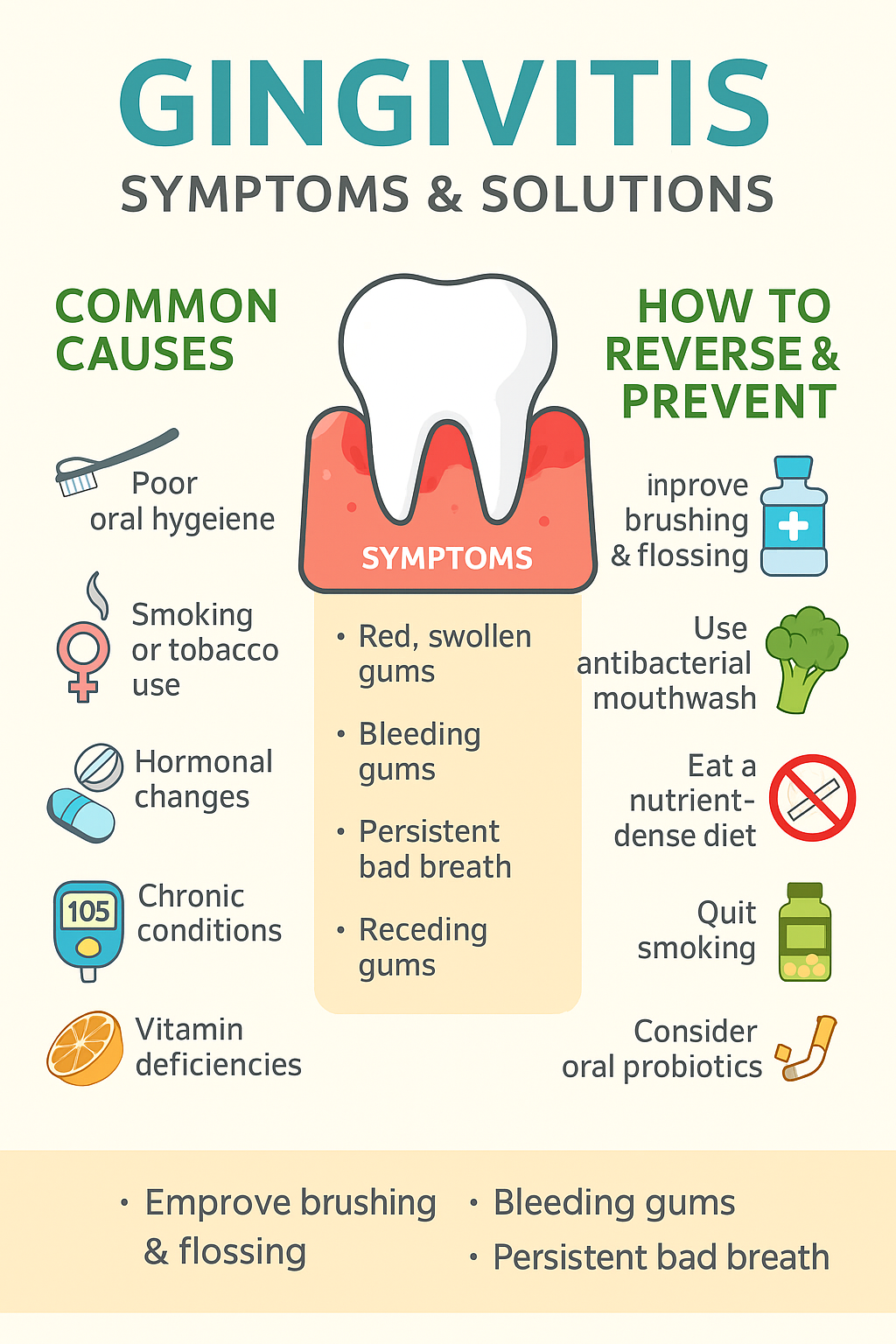Many people think of gum disease as a localized issue—something that only affects your mouth. But science tells a different story. Chronic gum inflammation can have far-reaching effects on your entire body, playing a role in serious conditions like heart disease, diabetes, and even cognitive decline. Understanding this link can help you take better care of your oral and overall health.
How Gum Disease Starts

Gum disease begins when bacteria in dental plaque irritate and inflame the gums, causing gingivitis. If left untreated, this inflammation can progress to periodontitis, leading to gum recession, bone loss, and even tooth loss. But the damage doesn’t stop there.
Inflammation: The Common Thread
Chronic gum inflammation allows harmful bacteria and toxins to enter the bloodstream through damaged gum tissue. Once in circulation, these pathogens can contribute to widespread inflammation throughout the body—a key factor in many chronic diseases.
Gum Disease and Heart Health
Studies have shown that people with gum disease are more likely to develop cardiovascular problems. Bacteria from the mouth may stick to fatty deposits in arteries, contributing to plaque buildup and increasing the risk of heart attack or stroke.
The Diabetes Connection
People with diabetes are more prone to gum disease—and gum disease can make it harder to control blood sugar. The relationship is bidirectional, meaning both conditions can worsen each other. Managing one helps manage the other.
Brain Health and Cognitive Decline
Research suggests a possible link between periodontitis and conditions like Alzheimer’s disease. Chronic oral infections may trigger inflammatory responses in the brain or allow bacteria to cross the blood-brain barrier, impacting memory and cognition.
Other Conditions Linked to Gum Disease
- Rheumatoid arthritis
- Kidney disease
- Pregnancy complications (e.g., premature birth, low birth weight)
- Respiratory infections
How to Protect Your Oral and Whole-Body Health
- Maintain excellent oral hygiene: Brush and floss daily, and use antibacterial mouthwash.
- Schedule regular dental checkups: Professional cleaning prevents plaque buildup.
- Support your microbiome: Oral probiotics like ProDentim help balance good bacteria and reduce harmful inflammation.
- Eat a balanced, anti-inflammatory diet: Prioritize vegetables, healthy fats, and lean protein.
- Quit smoking: Smoking worsens gum inflammation and impairs healing.
⭐ Discover how ProDentim helps defend your body through your mouth

